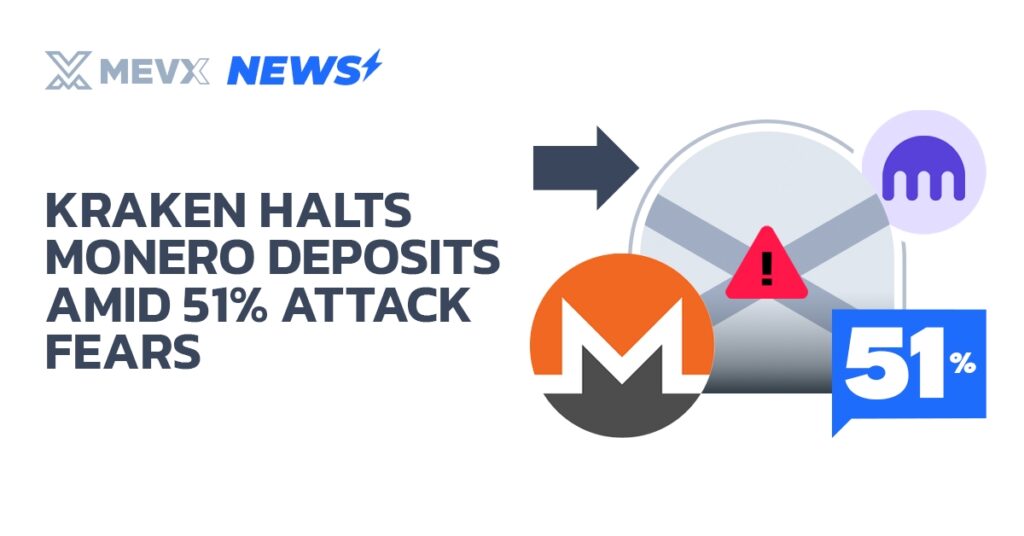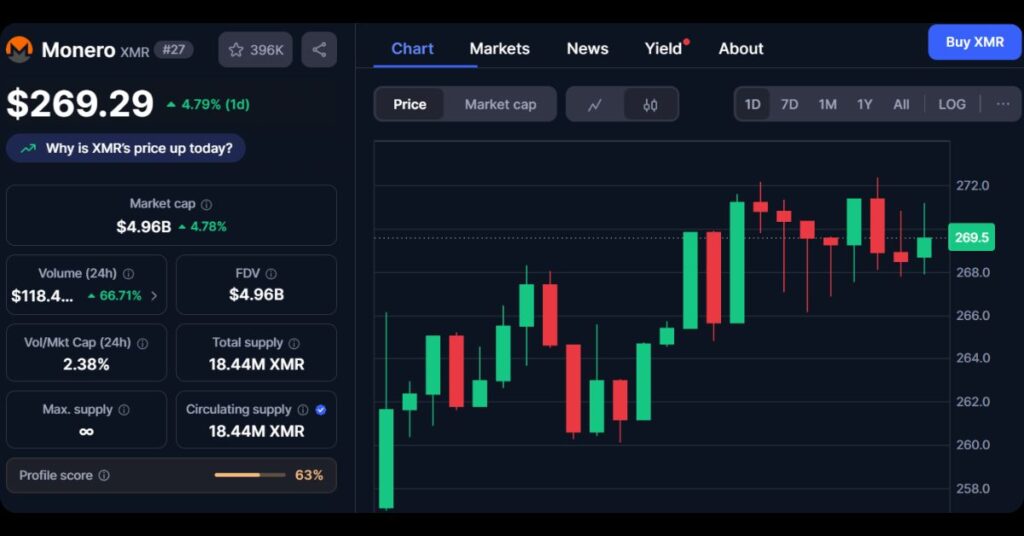Kraken has temporarily suspended Monero deposits (XMR) due to concerns over a potential 51% attack. This move highlights the vulnerabilities lurking in even the most privacy-focused blockchains, sparking broader discussions on network security in the crypto space.

Kraken Halts Monero Deposits – Key Features
- Hashrate Takeover: Qubic controlled more than 51% of Monero’s mining power temporarily, allowing for potential blockchain manipulations.
- Network Impact: A reorganization of blocks occurred, but no confirmed double-spending or theft was detected.
- Community Reaction: Forums like Reddit and X buzzed with debates, with some calling it a “death kiss” for Monero’s decentralization, while others praised it as a valuable lesson for improving pool diversity.
- Technical Vulnerabilities: Despite RandomX’s ASIC-resistant design, concentrated computing power from projects like Qubic exposed gaps in PoW systems.
Kraken Halts Monero Deposits – Details
The incident unfolded around August 12, 2025, when Qubic, an AI-driven mining pool, briefly seized control of over 50% of Monero’s hashrate.
Monero, known for its strong emphasis on user privacy through features like ring signatures and stealth addresses, relies on a Proof-of-Work (PoW) consensus mechanism using the RandomX algorithm. This design aims to promote decentralized mining, but Qubic’s dominance, peaking at about 2.6 GH/s, enabled a block reorganization of up to six blocks.
While Qubic described it as a “stress test” to evaluate the network’s resilience, critics viewed it as a classic 51% attack risk, where a single entity could potentially reverse transactions or double-spend coins.
Kraken’s response was swift. On August 15, the exchange announced the suspension of Monero deposits as a precautionary measure to protect users from possible chain reorganizations.
Withdrawals and trading remain unaffected, and Kraken has assured users that it will resume Monero deposits once the network is deemed secure.

No major losses were reported, but the event caused Monero’s price to fluctuate mildly, hovering around $230-$240, with some traders capitalizing on the dip.
This episode extends beyond Monero, raising alarms about broader crypto security. 51% attacks, though rare in major networks like Bitcoin, pose significant threats to smaller PoW coins, potentially eroding trust and adoption.
It underscores the need for enhanced decentralization, perhaps through hybrid models or shifts to Proof-of-Stake (PoS). As regulatory scrutiny intensifies, exchanges like Kraken are prioritizing user safety, but it begs the question: How secure is your crypto portfolio?
For the latest on crypto vulnerabilities and security tips, follow our blog at MevX and stay informed in this evolving landscape.
Share on Social Media:
